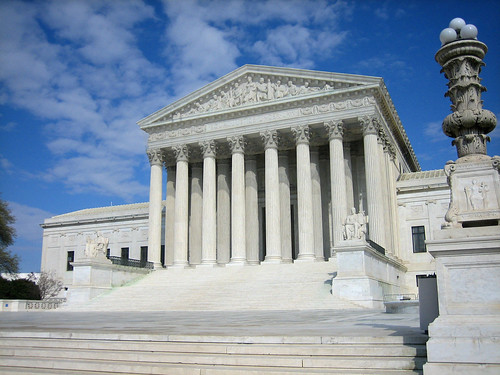
Open, Accountable Government

Top 400 Taxpayers See Tax Rates Rise, But There’s More to the Story
As Americans were gathering party supplies to greet the New Year, the Internal Revenue Service released their annual report of cumulative tax data reported on the 400 tax r...
read in full
Chlorine Bleach Plants Needlessly Endanger 63 Million Americans
Chlorine bleach plants across the U.S. put millions of Americans in danger of a chlorine gas release, a substance so toxic it has been used as a chemical weapon. Greenpeace’s new repo...
read in full
U.S. Industrial Facilities Reported Fewer Toxic Releases in 2014
The Toxics Release Inventory (TRI) data for 2014 is now available. The good news: total toxic releases by reporting facilities decreased by nearly six percent from 2013 levels. Howe...
read in full
Methane Causes Climate Change. Here's How the President Plans to Cut Emissions by 40-45 Percent.
UPDATE (Jan. 22, 2016): Today, the Bureau of Land Management (BLM) released its proposed rule to reduce methane emissions...
read in full
Living in the Shadow of Danger: Poverty, Race, and Unequal Chemical Facility Hazards
People of color and people living in poverty, especially poor children of color, are significantly more likely...
read in full
A Tale of Two Retirements: One for CEOs and One for the Rest of Us
The 100 largest CEO retirement funds are worth a combined $4.9 billion, equal to the entire retirement account savings of 41 percent of American fam...
read in full
Gasping for Support: Implementation of Tougher Air Quality Standards Will Require New Funds for State Agencies
New scientific research shows that the current levels of...
read in full





 Over the past 30 fiscal years, the federal government has run a surplus only three times. In the past three years, the government has seen deficits totaling almost $3.5 trillion, and the Congressional Budget Office’s (CBO) baseline prediction shows deficits for at least the next decade. With such a history and with the recent rise of the Tea Party and its fiscally conservative contingent in Congress, it is unsurprising that balanced budget amendments to the Constitution are once again finding their way to the national agenda. While forcing Congress to balance the books through a constitutional mandate may be appealing to many fiscal hawks, a balanced budget amendment could impede economic recoveries following Wall Street meltdowns and other calamities.
Over the past 30 fiscal years, the federal government has run a surplus only three times. In the past three years, the government has seen deficits totaling almost $3.5 trillion, and the Congressional Budget Office’s (CBO) baseline prediction shows deficits for at least the next decade. With such a history and with the recent rise of the Tea Party and its fiscally conservative contingent in Congress, it is unsurprising that balanced budget amendments to the Constitution are once again finding their way to the national agenda. While forcing Congress to balance the books through a constitutional mandate may be appealing to many fiscal hawks, a balanced budget amendment could impede economic recoveries following Wall Street meltdowns and other calamities. The U.S. Supreme Court heard oral arguments on Jan. 19 in a case that could have far-reaching ramifications for public access to corporate-related information. AT&T, fighting to prevent disclosure of Federal Communications Commission (FCC) files investigating the company, has argued that releasing the documents under the Freedom of Information Act (FOIA) would damage the company's privacy. This argument comes despite the fact that the expectation of privacy has long been recognized only as an individual right, not a corporate one.
The U.S. Supreme Court heard oral arguments on Jan. 19 in a case that could have far-reaching ramifications for public access to corporate-related information. AT&T, fighting to prevent disclosure of Federal Communications Commission (FCC) files investigating the company, has argued that releasing the documents under the Freedom of Information Act (FOIA) would damage the company's privacy. This argument comes despite the fact that the expectation of privacy has long been recognized only as an individual right, not a corporate one. by Craig Jennings, OMB Watch, Jan. 24, 2011
by Craig Jennings, OMB Watch, Jan. 24, 2011 Whenever a party takes control of one or both houses of Congress, it exercises its prerogative to implement a flurry of new rules and practices. This is generally unremarkable, though in 2011, with the House of Representatives returning to Republican control, the changes are stirring up controversy. Despite claiming to fight for fiscal responsibility and transparency, by tweaking a handful of rules, the Republican majority will end up delivering the opposite.
Whenever a party takes control of one or both houses of Congress, it exercises its prerogative to implement a flurry of new rules and practices. This is generally unremarkable, though in 2011, with the House of Representatives returning to Republican control, the changes are stirring up controversy. Despite claiming to fight for fiscal responsibility and transparency, by tweaking a handful of rules, the Republican majority will end up delivering the opposite. A
A 



